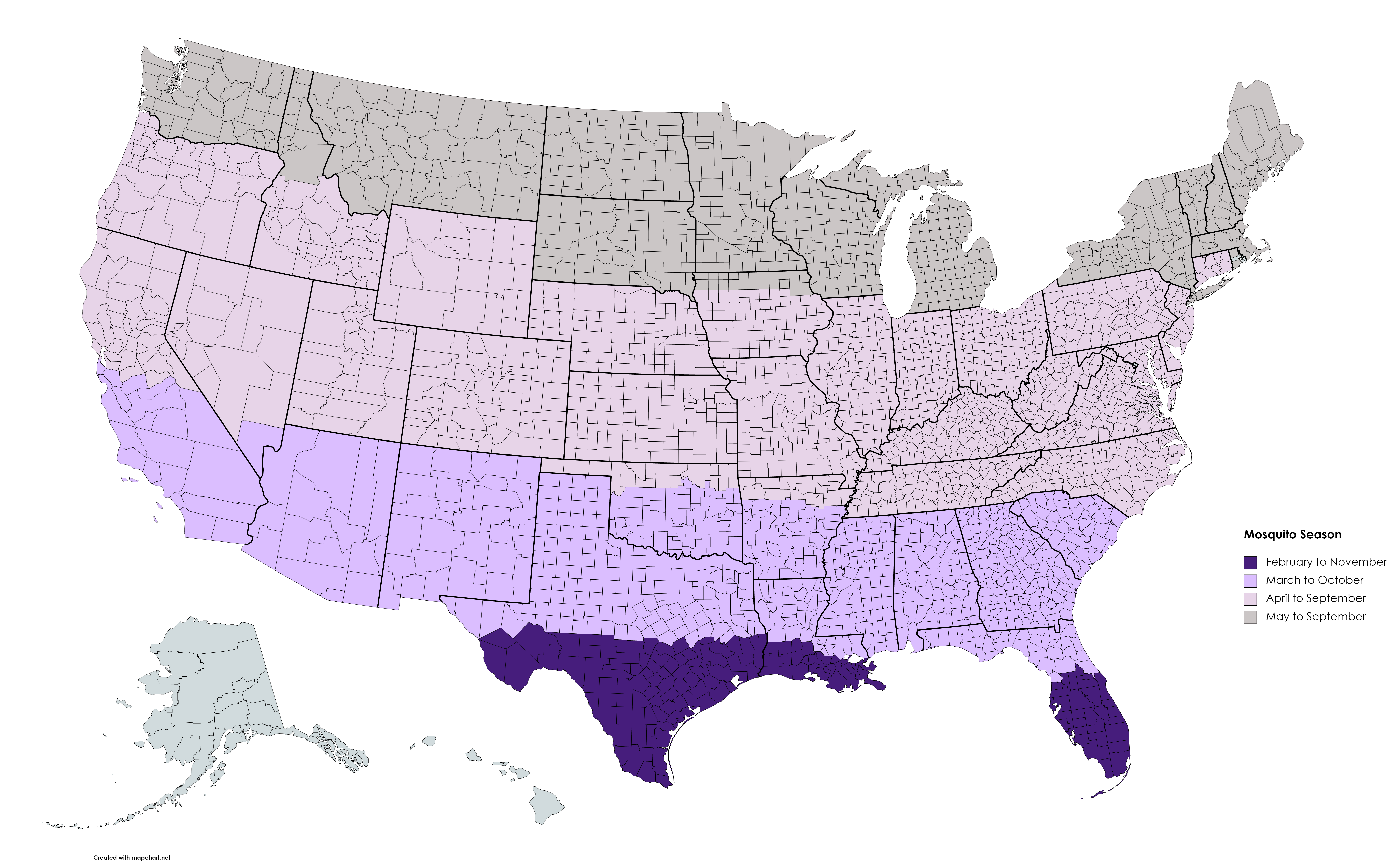
Part of what makes mosquitoes so scary is that their bites can cause anything from mild, short-lived discomfort to agonizing, potentially fatal diseases. Fortunately, in the United States, mosquito bites are usually more of an annoyance than a legitimate health risk. That’s not to say mosquito bites don’t pose health risks
Anybody is at risk from vector-borne Mosquito diseases. Diseases that mosquitoes can transmit include West Nile Virus, Chikungunya Virus, Dengue Virus, Malaria, La Crosse Encephalitis, Jamestown Canyon Virus, Western Equine Encephalitis, Eastern Equine Encephalitis, st. Louis Encephalitis, Yellow Fever, and Zika Virus.
West Nile Virus (WNV). This is the most common virus spread by mosquitos in the United States. Most people infected with WNV do not even feel sick, but about 1 in 5 will develop a fever and other symptoms. There are no vaccines or medications to prevent or treat WNV in people.
Eastern Equine Encephalitis (EEE) virus. This is a rare virus, with only a few cases being reported in the US each year. It is quite serious, however. Approximately 30% of people infected with EEE die, and those that survive often experience persistent neurological problems. Unfortunately, there are currently no vaccines to prevent or medicines to treat this virus.
St. Louis Encephalitis (SLE) virus. As with WNV, most people infected with SLE show no symptoms, but those who do become ill may experience headaches, nausea, vomiting, and tiredness. Some people may even develop neuroinvasive problems like encephalitis or meningitis. It is rare for SLE to cause death, but it has happened. As with the previous diseases, there are currently no vaccines or medicines to help with SLE.
Dengue. This disease is common in popular tourist destinations in the Caribbean, Central and South America, Southeast Asia, and the Pacific Islands. In the US, local cases of Dengue do appear sometimes in hot, humid states with Aedes mosquitos. About one in four people with Dengue will get sick. Of those who do, the most common symptom is fever. Other symptoms can include nausea, vomiting, rashes, and aches and pains.
Chikungunya. This virus is not known to occur locally in the US anymore, but travelers can pick it up from Africa, Asia, and the Caribbean, to name a few places. It most commonly causes a fever and joint pain. There is currently no vaccine to prevent this virus.
Malaria. This is by far the most well-known and feared mosquito borne illness, and for good reason. In 2021, there was an estimated 247 million cases of malaria worldwide, with 619,000 estimated deaths—staggering numbers. Unlike all the previous diseases, malaria is caused by a parasite, rather than a virus. People infected with malaria often experience fever, chills, and flu-like illness. If untreated, they may develop severe complications and die. About 2,000 cases are diagnosed in the US each year; the vast majority of these are from travelers and immigrants coming from areas where malaria transmission occurs, such as South Asia and Sub-Saharan Africa. There is only one approved vaccine for malaria, called mosquirix.
Mosquito-Borne Disease Cases Compared to State Population
Mosquito Control to Stop the Spread
While most of the time, the aftermath of a mosquito bite extends only to a bit of healthy scratching, the truth is, you’ll never know if a mosquito is carrying a disease or not. Therefore, it’s best to try and remove them from areas you frequent to the greatest extent possible. At MissQuito, our all-female team of trained experts targets mosquitos throughout their entire lifecycle using a variety of eco-friendly repellants.
Mosquito-Borne Diseases 2004-2018
Download mosquito-borne diseases by state by year.
About the data: Centers for Disease Control and Prevention. National Notifiable Diseases Surveillance System, Annual Tables of Infectious Disease Data. Atlanta, GA. CDC Division of Health Informatics and Surveillance, 2005-2018.